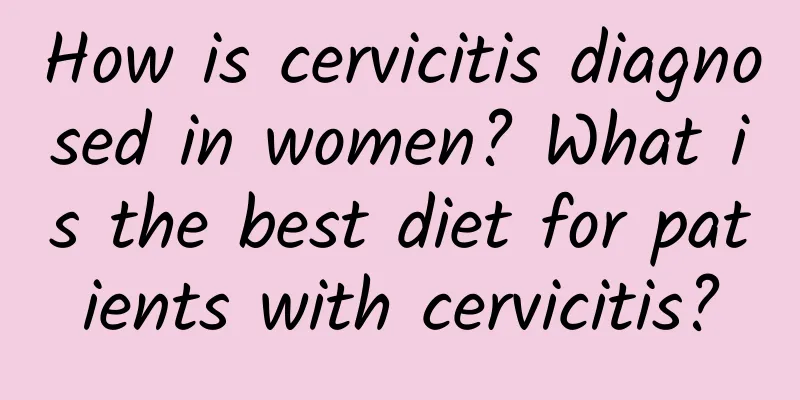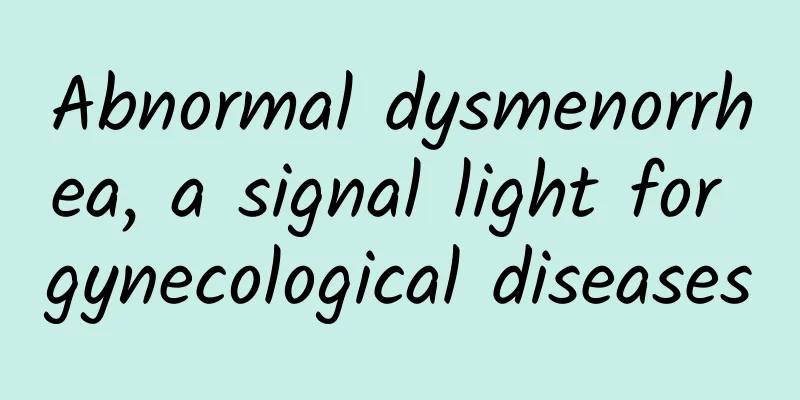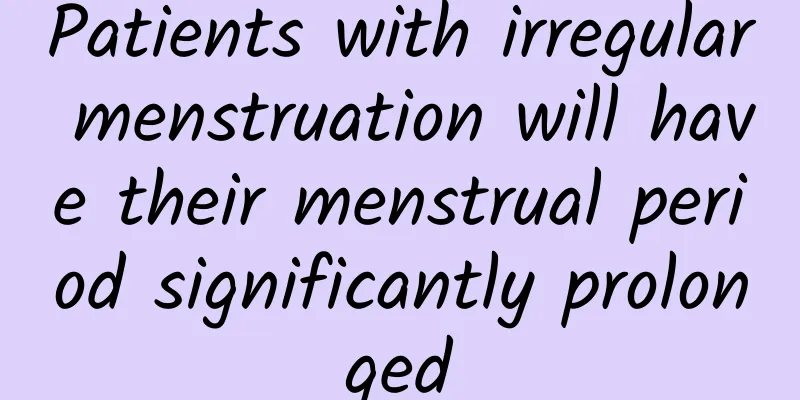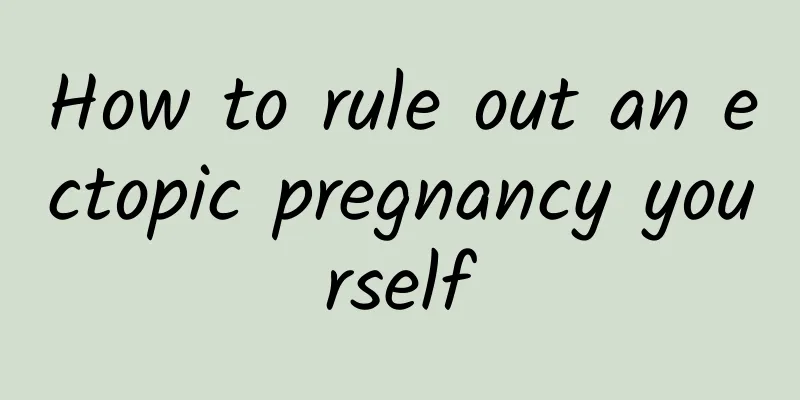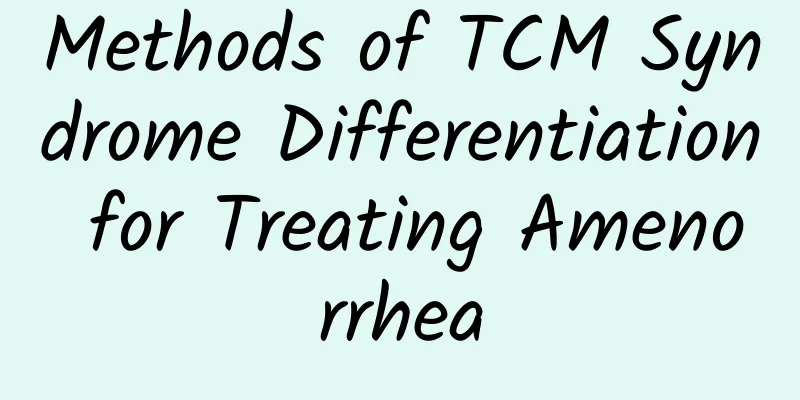What are the symptoms of intrauterine adhesions?
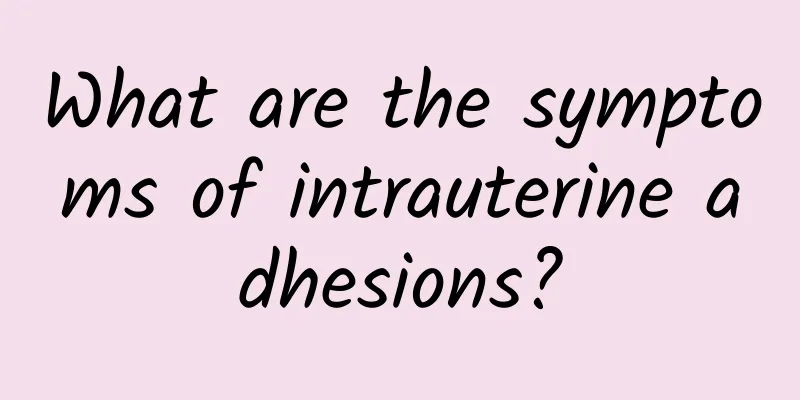
|
What are the symptoms of intrauterine adhesions? Intrauterine adhesions are a common gynecological disease that has a significant impact on women's fertility and health. The main symptoms of intrauterine adhesions include menstrual abnormalities, infertility, menstrual abdominal pain, intermittent bleeding, and chronic pelvic pain. If the symptoms persist, it is recommended to seek medical attention in time and take appropriate treatment measures under the guidance of a doctor. The details are as follows: 1. Abnormal menstruation: Intrauterine adhesions often lead to abnormal menstruation, such as decreased menstrual flow or amenorrhea. Timely medical treatment for ultrasound examination and, if necessary, hysteroscopy and treatment can effectively improve the symptoms of abnormal menstruation. Hysteroscopic surgery is a common method for treating intrauterine adhesions. It separates adhesions through surgery and restores the normal growth of the endometrium. 2. Infertility: Uterine adhesions may lead to infertility or repeated miscarriage. Under the guidance of a doctor, hysteroscopic surgery can separate adhesions and restore the normal shape of the uterine cavity, which will help increase the pregnancy rate and reduce the risk of miscarriage. Regular follow-up is required after surgery to ensure the recovery of the intrauterine environment. 3. Abdominal pain during menstruation: Adhesions prevent the endometrium from shedding normally, which may cause abdominal pain during menstruation. Use painkillers as prescribed by your doctor and undergo surgery if necessary to relieve symptoms. Abdominal pain during menstruation is often an important sign of intrauterine adhesions and should be taken seriously. 4. Intermittent bleeding: Uterine adhesions may cause irregular vaginal bleeding. Regular gynecological examinations and hysteroscopy when necessary should be performed to identify the cause and seek timely treatment. Intermittent bleeding may affect daily life and work, and medical treatment is required in a timely manner. 5. Chronic pelvic pain: Intrauterine adhesions can cause chronic pelvic pain and affect the quality of life. Physical therapy and drug therapy can relieve the symptoms of chronic pelvic pain. Chronic pelvic pain is often caused by tissue traction and inflammatory reactions caused by adhesions, and requires comprehensive treatment. In order to prevent and reduce the occurrence of intrauterine adhesions, women are advised to maintain good personal hygiene in their daily lives, avoid unnecessary intrauterine surgery, pay attention to sexual hygiene, and undergo regular gynecological examinations. |
<<: Can I drink saffron water if I have uterine fibroids?
>>: What does a drop in hcg mean for ectopic pregnancy
Recommend
What is dysfunctional uterine bleeding and what are its symptoms?
Dysfunctional uterine bleeding is actually abnorm...
What are the symptoms of pelvic inflammatory disease in women
What are the symptoms of pelvic inflammatory dise...
How many days of menstruation are considered normal? Revealing the normal menstrual period for women
Women's menstruation is the best reflection o...
Is endometriosis difficult to treat?
The difficulty of treating endometriosis varies f...
Medical research conclusions on the causes of uterine fibroids
Medically, the causes of uterine fibroids have be...
Calorie comparison of 8 types of rice dumplings: lotus leaf rice dumpling wins the kilocalorie ranking
When the Dragon Boat Festival arrives, there are ...
How to choose a hospital for uterine adnexitis
In clinical practice, some women suffer from adne...
Good food for winter tonic: miso detoxifies and helps lose weight
The weather is getting so cold. What kind of nour...
How do women use drugs to treat cervical erosion? Analysis of the pharmacological effects of treating cervical erosion
The occurrence of cervical erosion is due to the ...
We need to know the examination methods of pelvic inflammatory disease in time
Nowadays, more and more people in my country suff...
What should I do if my menstruation is irregular and my uterus is not fully developed?
What should I do if my menstruation is irregular ...
How to take care of uterine fibroids after laparoscopic surgery?
What are the precautions after laparoscopic surge...
What is menorrhagia? Is menorrhagia a symptom of uterine fibroids?
Uterine fibroids are one of the most common benig...
Experts: How often is a period considered irregular?
For women, the menstrual cycle is usually one mon...
Which is less harmful, surgical abortion or medical abortion? Let's take a look at the results of the comparison between surgical abortion and medical abortion
For women who have an unexpected pregnancy, the m...

